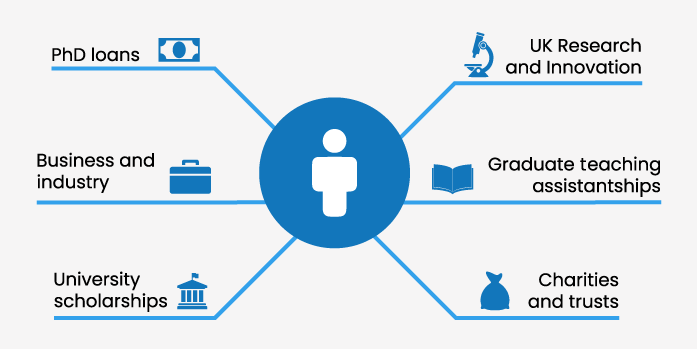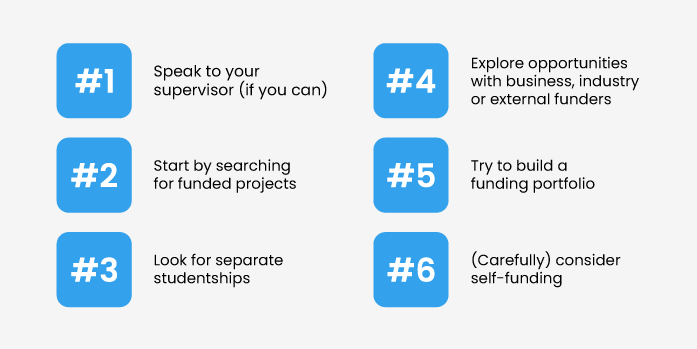#1 Speak to your supervisor (if you can)
It's best not to contact a potential supervisor just to talk for funding, but if you're already in conversation with one it makes sense to get their advice on your search. They'll have a good idea what is and isn't worth focussing on and they may also know about specific funders or scholarships for your field.
#2 Start by searching for funded projects
Lots of PhD projects are actually advertised with funding attached. They're much more common in STEM, but that doesn't mean there aren't any in subjects like English, Philosophy or Sociology. Find one and your funding search gets a lot simpler.
#3 Look for separate studentships and PhD bursaries
You might be proposing your own PhD topic or considering applying for an advertised project without funding (or with funding you aren't eligible for). Either way, the next step is looking for a studentship or scholarship to 'attach' to your PhD.
The best place to look for one is probably your university. They'll have awards of their own but will also distribute government funding (such as UK Research Council studentships) or larger charitable grants and bursaries.
#4 Explore opportunities with business, industry or external funders
In some fields this should really be step #1, but you'll know if so (or your supervisor will tell you). Otherwise, this option is worth a try if you've got this far without finding full funding.
Try to think of relevant companies or organisations that might take an interest in your research or its results. Common sense can guide you here: it's unlikely that an automotive manufacturer will pay for your PhD in eighteenth-century lyric poetry; equally, the Arts Council probably won't help you design a new electric car.
#5 Try to build a funding portfolio
By this point you've moved from looking for full funding to looking for partial funding (at least for now). There are still lots of options available to you though, in the form of smaller PhD funding grants and fee waivers.
Your university may be able to help here, either through a fee discount or a partial scholarship. Now is also the time to be approaching smaller charities and trusts (of which there are many).
#6 (Carefully) consider self-funding
It's perfectly possible to pay for a PhD yourself, particularly if you're in a field that lends itself to flexible working and lower research expenses (the Arts and Humanities are the classic example here, but there are others).
Self funding isn't easy though. PhD loans and part-time work can offset a lot of your fees and day-to-day expenses, but you'll never be able to completely ignore the financial side of things.
Our advice would be to discuss things with a prospective PhD supervisor and get their advice on the amount of time you'll have for work, as well as how realistic it might be to find more complete funding later in your project.

 Continue with Facebook
Continue with Facebook








